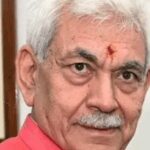In an article by Andres Schipani and David Pilling on the Rwanda elections (Report, July 16) the Rwandan government spokesperson stated that I am neither an opposition politician nor a defender of democracy, but an
“unrepentant criminal”.
The spokesperson’s comment is the latest example of the Rwandan
government’s refusal to allow me to present the people with an alternative to 30 years of authoritarian rule. This is because, in Rwanda, the only opposition tolerated is one that toes the government line.
The spokesperson referred to my conviction in Rwanda. This is not the complete story. I was arrested in 2010 as I was preparing to run in the upcoming presidential elections. The UK parliamentary under-secretary of state for Africa declared that my arrest was based on trumped-up charges. My trial was widely criticised as politically motivated by Human Rights Watch, the European parliament, and the US Department of State.
I took my case to the African Court on Human and Peoples’ Rights, which found my rights had indeed been violated, and ordered the Rwandan
government to pay compensation. The government has refused to do so. In Rwanda, there is no independent judiciary, as was acknowledged by the UK Home Office. Politically sensitive cases are decided in line with the Rwandan government’s agenda.
As untrue and offensive as the spokesperson’s comments about me were, they pale in comparison with the recent threats made against me by Paul Kagame, the Rwandan president.
While campaigning, the president told the press that I would “not end up well” if I persisted in “talking evil about Rwanda”. He added the state would “find an appropriate solution” to combat the lies of critics like me. He told the gathered journalists: “When they tell lies, refute what they say. But if they cross the line, the consequences are clear.”
No Rwandan will have difficulty understanding what was meant by these words. It is this kind of violent rhetoric in political discourse that must be condemned by all who support the rule of law and democratic freedoms. These freedoms remain unavailable in Rwanda. This is the reality that motivates me to continue.
Victoire Ingabire Umuhoza
Kigali, Rwanda





